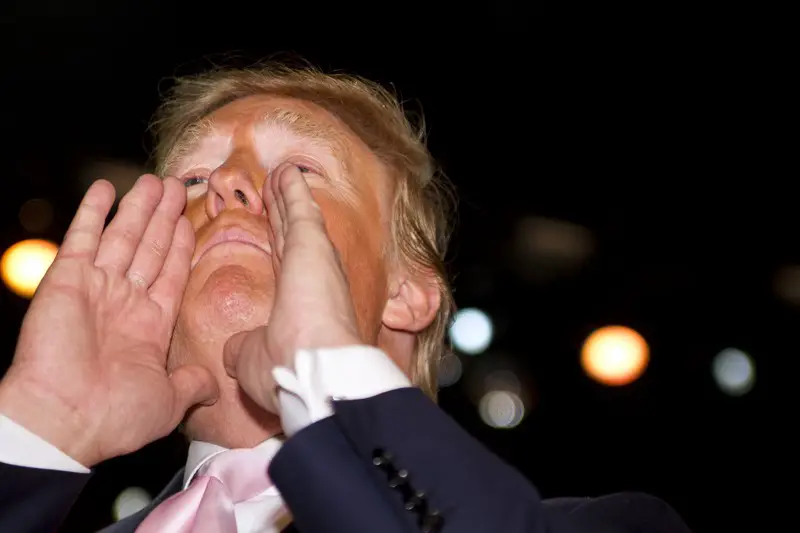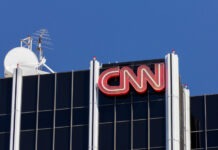A much-anticipated meeting between President Donald Trump and Australian Prime Minister Anthony Albanese at the White House on Monday, October 20, 2025, took an unexpectedly tense turn when the president publicly confronted Australia’s ambassador to the United States, former Prime Minister Kevin Rudd, over past critical comments. The incident provided a moment of high drama during what was otherwise a remarkably successful diplomatic engagement between the longtime allies.
The confrontation unfolded in the gilded cabinet room when an Australian reporter asked Trump about remarks Rudd made in 2021, when he described Trump as “a village idiot” and “not a leading intellectual force.” Trump initially appeared not to recognize the silver-haired ambassador, who was seated barely two meters away from him at the cabinet table.
When asked about the comments, Trump responded by questioning whether an ambassador had said something negative. Albanese then pointed across the table to identify Rudd’s location. In a half-joking tone, Trump turned his attention to Rudd.
He said, “I don’t like you either. And I probably never will.”
The remark prompted loud laughter throughout the packed room, with Albanese himself among those chuckling at the exchange.
After reporters left the cabinet room, Rudd was observed leaning toward Trump to offer an apology for his previous statements. According to Australian sources present, Trump told Rudd that all was forgiven. The brief confrontation appeared to carry a flippant and humorous tone rather than genuine animosity, particularly given Trump’s tendency to hold grudges and create derisive nicknames for those who criticize him.
The incident came after months of speculation about whether Rudd’s past criticism would damage U.S.-Australia relations. Conservative critics had warned that Trump might hold Australia at a diplomatic distance due to the ambassador’s remarks. When Trump won re-election, a senior adviser to the president reposted Rudd’s congratulatory statement on social media accompanied by an hourglass gif, fueling concerns about the ambassador’s standing.
Despite the awkward moment, the meeting delivered substantial diplomatic wins for Australia. Trump and Albanese signed an $8.5 billion agreement on rare earths and critical minerals, with both countries committing to invest $1 billion over the next six months into mining and processing projects. The deal also establishes a minimum price floor for critical minerals and calls for streamlined permitting processes to boost production.
Trump expressed optimism about the agreement’s impact, stating that within approximately one year, the two nations would have abundant supplies of critical minerals and rare earths. The deal aims to reduce Western dependence on China, which currently dominates global production of these materials essential for smartphones, electric vehicle engines, and military equipment. According to U.S. Geological Survey data from January, China produced 270,000 tons of rare earths in 2024 with reserves of 44 million tons, while the United States produced just 45,000 tons with 1.9 million tons in reserves.
Trump also provided a renewed commitment to Aukus, the landmark defense pact that will provide Australia with cutting-edge nuclear submarine technology in exchange for assistance in countering China in the Asia-Pacific region. The endorsement ended months of uncertainty following a review announced in June that had caused considerable anxiety in Canberra about whether the deal might be canceled or rewritten.
During the meeting, Trump praised the U.S.-Australia relationship extensively, telling Albanese that the nations have been longtime allies and calling the partnership exemplary. He noted that the countries have fought wars together without ever experiencing doubts about their alliance. Trump also appeared to dismiss concerns raised by Defense Secretary Pete Hegseth about Australia needing to significantly increase its defense spending.
The positive reception stood in contrast to recent tensions between the two nations. Trump had previously imposed a 10 percent import tax on most Australian goods, with 50 percent tariffs on aluminum and steel, which Albanese characterized at the time as not the act of a friend. The tariffs were viewed as a breach of a decades-long free trade agreement. Additionally, Albanese’s lengthy struggle to secure a face-to-face meeting with Trump had been interpreted by parts of Australia’s parliament and media as a diplomatic snub.
Analysts from Australia’s Lowy Institute noted that the Trump administration has been testing long-held beliefs about U.S. reliability as an ally. Despite Trump’s unpopularity in Australia, where polling consistently shows skepticism about his leadership, approximately half of Australians believe their nation needs its alliance with the United States more than ever, largely due to concerns about China’s military build-up in the Asia-Pacific region.











